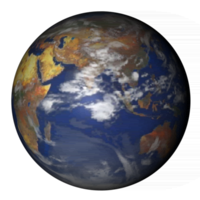The Sixth Extinction

“Once we spread out into space and establish colonies, our future should be safe.”
— English Theoretical Physicist and Lucasian Professor of Mathematics at the University of Cambridge, 1942-
Five times before the world has almost died. Many experts believe that we are now in the Sixth Extinction. More accurately known as the Holocene extinction event, it refers to the widespread, ongoing mass extinction of species during the modern Holocene epoch that began 10,000 years ago, at the end of the last Ice Age.
The previous ones were all a very long time ago, and were probably caused by cosmic events:
- 444 million years ago: the End Ordovician
- 360 million years ago: the Late Devonian
- 251 million years ago: the Permian-Triassic transition
- 200 million years ago: the End Triassic
- 65 million years ago: the End Cretaceous (this is the one that you probably learned about in school: it was the one that is thought to have ended the reign of the dinosaurs)
The reason that so many people are becoming more conservationist in their outlook is that the observed rate of extinction has accelerated dramatically in the last 50 years to a pace that is greater than the rate seen during the Big Five extinctions.
Unlike the previous extinctions that were likely caused by astronomical events, most experts attribute the sixth extinction directly to human activities. So they can be a good barometer of where we are going wrong with the world. Since 1500 AD, 698 extinctions have been documented by the International Union for Conservation of Nature and Natural Resources.
In the United Kingdom, the publication of the Stern Report that outlined the frightful impact not of extinctions but of global climate change, was endorsed by the current Prime Minister, Tony Blair. He endorsed it not out of the goodness of his heart, but because the report demonstrated the impact not just on people but on the economy. It seems a shame that it takes money to persuade some people in high places to do the right thing. Naturally the Stern report has had more than its fair share of criticisms. But the fact that more people in politics and industry are talking about global climate change and the impact of our activities on people and on many other species is obviously a good thing.
However I think that the real change in how we live with the earth lies not simply in understanding the impact on our bottom line, but in our own level of development. Rather tha following Stephen Hawking’s advice and heading off into space, we need to get ourselves in order, unless we want to take all the behaviors that have caused this catastophe with us.
In recent years I have been persuaded by the spiral dynamics model. As more people embrace the Green, Yellow and Turquoise Memes they understand not just intellectually, but viscerally, the importance of preserving the planet and terminating the headlong rush toward the sixth extinction. Ken Wilber has written eloquently about the downside of what he calls the “Mean Green Meme.” But once enough of us make the jump to second-tier thinking there are no longer these mean downsides. Just a constant desire, need even, to nurture and preserve the planet.
One of the reasons for my efforts to assist your personal growth and development is that neither health nor illnesses exist in isolation. They are born from and affect everyone in the individual’s social group, and their resolution requires the cooperation of everyone in the group. And that social group includes the planet and all the creatures around us.
I have been asked to start sharing yet more of the practical techniques that have helped thousands of students over the last 30+ years, so I am going to start creating a new set of podcasts to help anyone who would like them.
“By 2050, at bio-extinction’s current rate, between 25 per cent and 50 per cent of all species will have disappeared or be too few in numbers to survive. There’ll be a few over-visited parks, the coral reefs will be beaten up, grasslands overgrazed. Vast areas of the tropics that have lost their forests will have the same damn weeds, bushes and scrawny eucalyptus trees so that you don’t know if you’re in Africa or the Americas.”
–Stuart L. Pimm (English-born American Conservation Biologist, Doris Duke Professor of Conservation Ecology Environmental Sciences and Policy Division at Duke University and Originator of the “Food chain” concept in research into extinction of plants and animals, 1949-)
“Every creature is better alive than dead, men and moose and pine trees, and he who understands it aright will rather preserve its life than destroy it.”
— Henry David Thoreau (American Essayist and Philosopher, 1817-1862)






